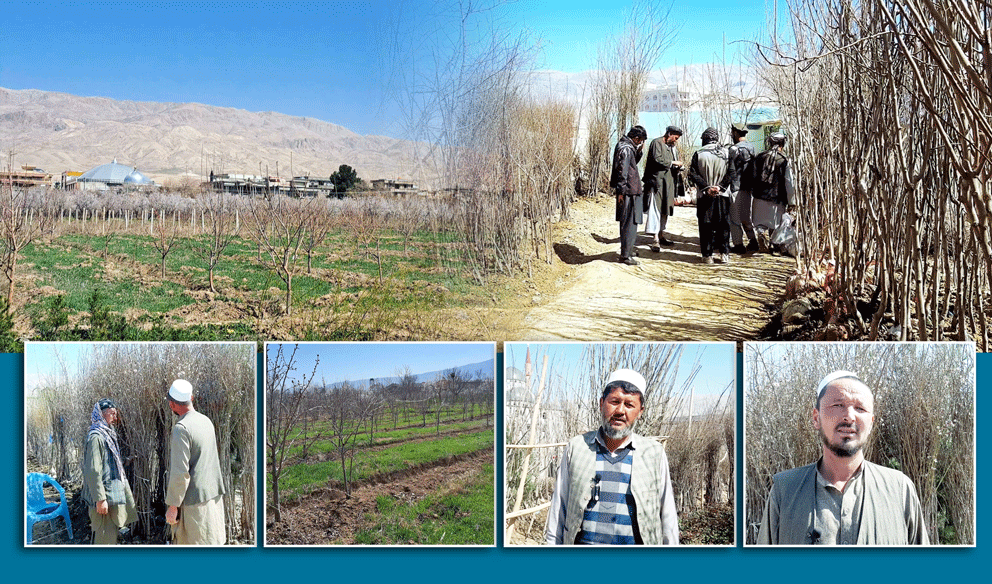AIBAK (Pajhwok): Some farmers in northern Samangan province have turned to almond and other fruit gardening following a decline in the rate of Asafetida.
Earlier, most farmers chopped off their almond trees and cultivated Asafoetida because of higher income but the situation has changed and now they started the plantation of almond saplings again.
According to Pajhwok Afghan News findings three years ago one kilogram of the substance obtained from Asafoetida was sold against 28,000 afs but this year the same quantity of the product was sold against 2,500 afs.
Islamuddin, one of the farmers, who came to the Municipality sapling market in Aibak, said as a result of the decline in the Asafoetida rate he had been forced to purchase almonds and other saplings because the removal of the garden was not in his interest.
He said: “Two years ago, with my available budget, I bought and planted Asafoetida seeds, and at the same time chopped off my garden’s trees, and now I am experiencing the biggest economic loss, earlier I earned up to 100,000 afs annually from my garden, but in these two years, in the past two years I spent all I had on Asafoetida cultivation.”
Mohammad, another gardener in Samangan, said he cultivated 10 kilograms of Asafoetida seed on a piece of his irrigated land and it cost him 100,000 afs but he was unable to sell even one kilogram of Asafoetida product.
He added: “I had no option but to cultivate fruit and non-fruit saplings on our land, planting saplings did not cost much, and it is clear that after a few years, it will pay off, and at the same time, it also improves the environment.”
Meanwhile, several sapling sellers in Samangan said that with the arrival of the spring season, the market for fruit and non-fruit saplings, flowers and other beatification plants had tripled compared to two years ago, and the price of one almond seedling has increased from 5 to 70 afs.
Nooruddin, one of the sapling sellers in the Municipality market, said: “For the past two years, the sapling market in Samangan was weak, because a large number of the people cultivated Asafoetida, and no one brought the saplings, and we had to sell a sapling for 5 to 10 afghanis.”
However, he expressed satisfaction with the improvement of the sapling market, saying that one almond plant is sold for up to 70 afs and one apricot plant for up to 80 afs this year.
Khalbai, another sapling seller, said Last year, he sold 2,000 saplings, but this year he has sold more than 7,000 saplings of different types, and it is still the beginning of the spring season, so his sales figures may increase.
Local officials in Samangan acknowledged that the decline in the Asafoetida substance rate affected farmers and by the start of the spring season farmers started the plantation of different types of fruit trees such as almonds.
Najibullah Khuram, director of Natural Herbs Plants Management, said his department has planted more than 11,000 fruit and non-fruit saplings in various departments and government offices to beautify the city and reduce pollution.
He said in the previous years, gardeners of this province had cut off their trees and cultivated Asafoetida.
Unfortunately, due to the decrease in demand and the increase in the number of growers, the price of Asafoetida decreased significantly, which has caused a number of gardeners to suffer.
Khuram said this year, several gardeners have planted fruit saplings, adding that the provincial Agriculture Department welcomed the increase in the plantation of saplings and would cooperate with the farmers on maintenance of their gardens so they could get high yield.
nh







GET IN TOUCH
NEWSLETTER
SUGGEST A STORY
PAJHWOK MOBILE APP